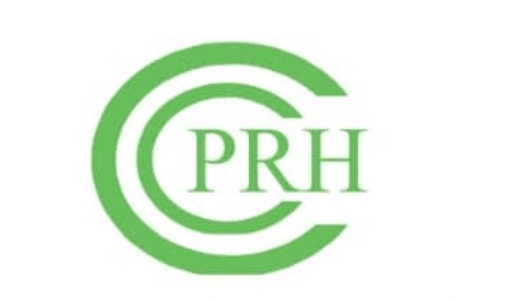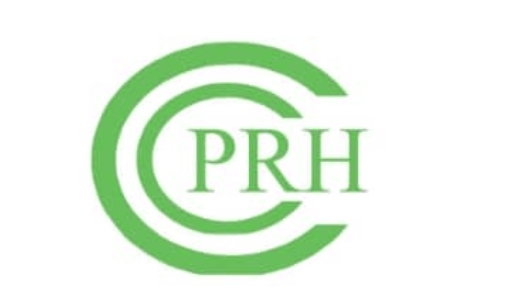NAME OF DONOR: USAID Integrated Health Program
PROJECT TITLE: Prompt Management of Integrated Childhood Illnesses and Provision of Family Planning Services Using Patent and Propriety Medicine Vendors (PPMVs) and Community Pharmacists (CPs) in Bauchi State
ACTIVITY TITLE: PPMVs/CPs Project Final Report
DESCRIPTION/SUMMARY OF THE PROJECT
This report summarises the outcome of community-level interventions on quality service provision for childhood illnesses and family planning services using the Patent and Proprietary Medicine Vendors (PPMVs) and Community Pharmacists (CPs) implemented in Bauchi State through a grant under contract (GUC) mechanism of the United States Agency for International Development’s (USAID) Integrated Health Program (IHP). The activity aimed to strengthen the private sector providers through capacity building for PPMVs and CPs on timely identification of uncomplicated common childhood illnesses (malaria, pneumonia, diarrhoea, nutrition screening), improving access to family planning services and products and referral of pregnant women/new-borns and severely ill patients to health facilities for appropriate care through a strengthened referral system, and data documentation using the Community Health Management Information System (CHMIS). The training focused on integrated health interventions such as reproductive, maternal, newborn, child, adolescent health, nutrition, and malaria (RMNCAH+NM) services.
Twenty-four (24) qualified healthcare workers with experience in related health areas, including nursing, pharmacy, and health technology from the public and private sector, as well as retired service providers from the health sector, were engaged as potential master trainers. Through engagement and training, 18 trainers/supervisors were selected and deployed based on competencies in knowledge and practical assessments (scored 85% in the post-training assessment). They conducted a cascade training in 3 batches for 361 PPMVs and 51 CPs across 20 local government areas (LGAs) in Bauchi State. The participants were those who met the selection criteria by registering with PCN and renewing their licenses, as well as the minimum criteria set by PCN for operating a PPMV outlet. The batch trainings were conducted in clusters, representing PPMVs and CPs within the respective LGA clusters. The cluster approach was based on proximity to hold single training sessions at a centrally located venue. Monthly follow-up mentoring visits were conducted to each enrolled PPMV and CP outlet to ensure implementation is in line with iCCM guidelines, identify gaps in the implementation process, ensure service delivery data are documented using the CHMIS tools, provide quality improvement planning and action plan development, and improve healthcare service delivery among PPMVs and CPs.
METHODOLOGY
One of the key interventions adopted by USAID IHP in the design and implementation of the project is to strengthen the private sector providers through capacity building for PPMVs and CPs on prompt management of integrated childhood illnesses and provision of family planning services. This was done through a series of activities from a ToT to the cascade training at the community level, concluding with follow-up mentoring to address gaps in implementation. The training approach was based on both participant-centred learning and competency-centred training approaches, using adult learning principles. The participant-centred learning approach involved active, collaborative, and inquiry-based learning, which supported learning through case studies, guided discussions, exercises, and role plays. This approach enabled participants to apply the knowledge gained into practice. The competency-based approach involved applying knowledge and skills to provide comprehensive, high-quality care to identify and treat common childhood illnesses, providing family planning services and referrals, conducting nutrition assessments and counselling, and maintaining accurate records.
The project utilised an off-site cluster training approach. In this context, a cluster is a group of PPMVs and CPs in proximity. The project was implemented in 18 clusters, which represented the 20 LGAs covered by the project. The off-site cluster approach takes the training venue closer to the participants, with the training site identified in each cluster and providers from the PPMVs and CPs within the cluster attending training in their clusters. The clustering approach reduces the travelling distance the PPMVs and CPs have to embark on to attend the training in a supportive environment where they can relate to and discuss the challenges, successes and opportunities for improvement. It also increases ownership of the project as the LGA /cluster stakeholders can discuss and develop a roadmap to ensure the uptake of services within their cluster.
PCN shared the list of registered PPMVs and CPs, which were assessed and enrolled using set criteria including some health background, location in populated/underserved area, registration/willingness to register with PCN and willingness to stock essential child health and FP commodities). Through this approach, 361 PPMVs and 51 CPs were trained in 18 clusters across 20 LGAs. In some clusters, venues identified for the training were not conducive; however, with the help of stakeholders within the cluster, new venues were identified, and participants were moved to the new venue. Joint monitoring and supervision were also carried out by the CCPRH key personnel, PCN, NAPMED, ACPN, Promoting Quality of Medicines (PQM+) and State Ministry of Health representatives to ensure effective service delivery and data compliance. The most important lesson learned was the collaboration among stakeholders leading to ownership of the program and service provision across the clusters.
ACHIEVEMENT OF RESULTS AND DELIVERABLES
The activity successfully trained and mentored 412 PPMVs and CPs across 20 LGAs in Bauchi State between August 2022 and September 2023. The average pre-training assessment score for PPMVs was 50.3%, while CPs scored 46.7%. PPMVs and CPs received an average post-training score of 93.0% and 92.7%, respectively, representing an absolute increase of 42.7% and 46.0%, respectively.
Throughout the project duration, PPMVs’/CPs’ monthly reports revealed the provision of RMNCAH+NM services. Out of a total of 38,868 cases of childhood diarrhoea, 29,485 children received ORS+Zinc treatment, which accounts for 76.0%. Similarly, out of 15,338 cases of fast breathing, 13,935 were treated with Amoxicillin DT, which is 91% of all cases. Among the cases of severe respiratory symptoms, 2,604 children were referred for further care, and 20,492 females used modern contraception. For malaria testing, 89.0% of children aged 0-59 months and 87.7% of individuals above 5 years with fever were tested using mRDT. Of those confirmed mRDT positive, 95.3% of those aged 0-59 months and 96.8% above 5 years were treated with ACT. Regarding maternal health, 4,171 pregnant adolescents and 8,631 pregnant adults received Iron and Folic Acid. The nutritional assessment of children showed that 22,777 children were in the “Green”, 7,743 in the “Yellow”, and 2,498 in the “Red” category. Additionally, 1,748 malnourished children between 6-59 months were referred for nutrition services and counselling, with referral overall rates of 70% achieved for both PPMVs and CPs.
RECOMMENDATIONS
This project promoted state, community and LGA level stakeholder buy-in to build sustainability on prompt management of integrated childhood illnesses and provision of family planning services by PPMVs and CPs on identification, care, referral, and documentation; however, continued promotion of supportive supervision is required to sustain efforts. Through the course of the training and follow-up mentoring, utilisation of the referral system proved to be lacking; despite the successes recorded, efforts are needed to strengthen referral services and data collection at the LGA level, including increased synergy and visibility for stakeholders, especially PCN, ACPN and NAPPMED. Also, the formation of a state-level sustainability implementation committee, which includes the State Ministry of Health, State Primary Healthcare Development Agency (SPHCDA), Local Government Authorities (LGAs), Association of Community Pharmacists of Nigeria (ACPN), BACATMA, WDCs, State Agencies, and partners for increased supportive supervision to build sustainability.
ACTION PICTURES/INFOGRAPHICS/LINKS TO ILLUSTRATE ACHIEVEMENTS
Photographs are available through link : Photographs










